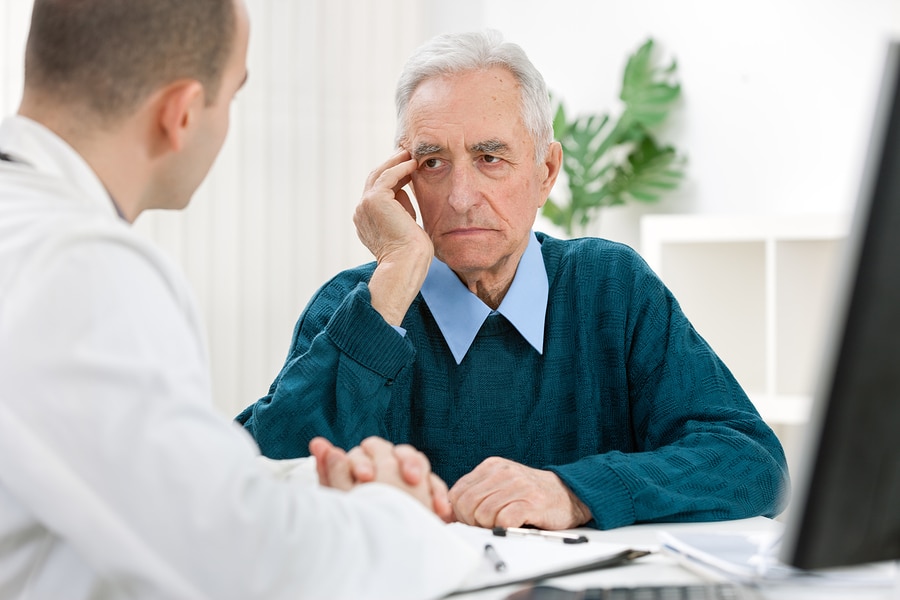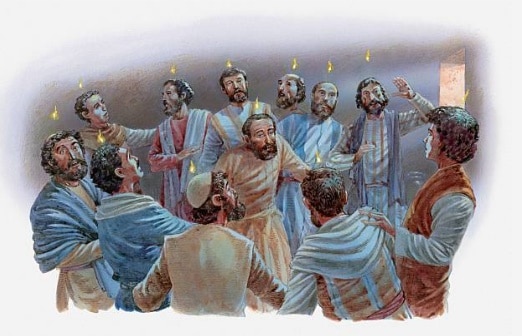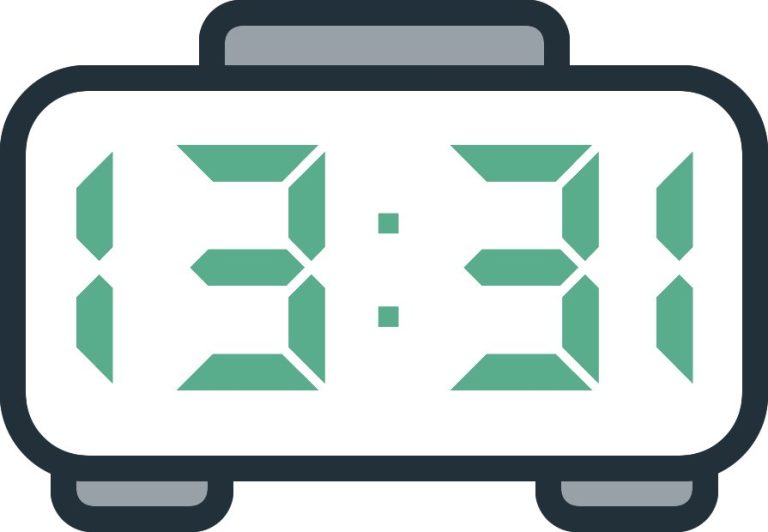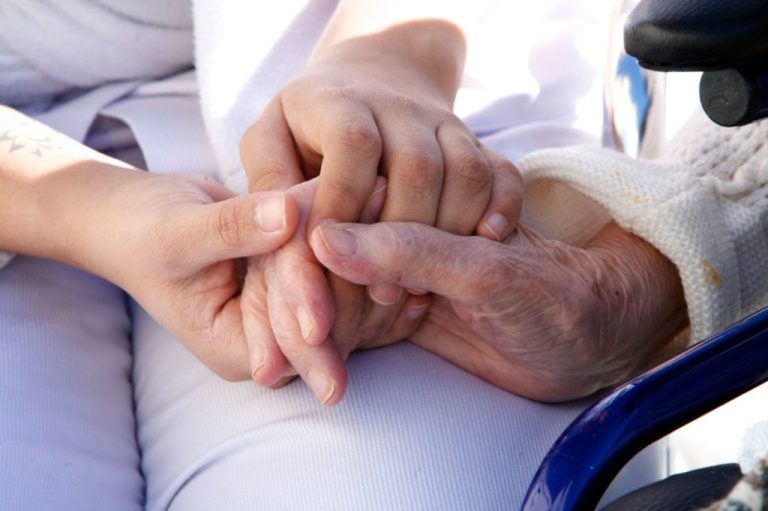Know the Prayer for a patient who is going to operate on an open heart
Every day each person is fighting a battle with some disease not only terminal but those that deteriorate life in its path and need to be taken to an operating room. In this Post we will talk about one of the most difficult moments of a person suffering from heart disease and how to make a Prayer for a patient who is going to operate.
Why perform a Prayer?
Once we have understood what an open heart intervention consists of and each one of the risks that a person runs when subjected to it and that one of the most complicated phases and with the greatest disadvantages is the post-operative or rehabilitation phase, we will be able to understand and it will be much easier for us to pray for these patients.
A person after undergoing surgery must be understood, since discouragement is one of their best allies and even more so after a heart medical procedure, particularly after leaving the emergency clinic. Somehow, this whole process has an impact on everyone.
They can occur in numerous areas, including bitterness, fear of complexities, feeling tired, lack of vitality, impotence to rest and little desire, it is for all this that a prayer should be raised for a patient who is going to operate because frequently, these things are not evident in a condition of positive vitality in the clinic, where you will have support and energy for everything that may be necessary.
Importance
Yes, in fact it is considered that one of the healthiest and most accurate ways to help someone is through prayer, precisely because it is a quick and direct method of asking the father. Sometimes you don’t know how to pray, but the Holy Spirit that dwells in each person who has confessed Jesus, is in charge of discerning and revealing the true purpose of our heart.
It is not necessary to express a correct prayer without errors, it is only necessary to have a heart willing to believe in God and that the answer will come, not according to our need, but according to the true will of the Father. You will feel the need as yours while you pray, that is one of the first purposes of conversing with God and interceding for others.
Prayer for a patient who is going to have an open heart operation
Thank you God for your infinite love, thank you because we can freely come before you to bring our requests. Once again I recognize your benevolence, your ability to resolve any situation. I recognize that without you nothing would make sense.
You marked our destiny from birth, you even predestined us long before we were born. That’s why you know every part of our being. From each tissue to the smallest cell organelle. I do not know another Supreme Being who has the power to take care of the most vulnerable as you do.
Many people in this world are fighting a battle that is unknown to others and only he goes through it and recognizes the importance of it. Help us to be more sensitive to the needs of each person who suffers, not to turn away when someone asks for our support.
You are a God of Miracles, that is why today I raise before you a prayer for each patient who deserves to be admitted to the operating table, I ask you to be the best doctor, that your excellence and wisdom accompany each staff concentrated in the operating room.
Guide each heart, guide each mind according to the destiny you give to patients, open heart surgeries are the second cause of death established in the surgical environment, the risks are innumerable no matter how small each intervention may seem.
Take control Lord and mentally and physically stabilize the patient, put continuous strength and faith that everything will be fine. He strengthens his familiars like an oak tree. Your word says that you are the one who places the will and the doing in each heart, I also ask for the will and desire of each family member to provide the necessary support to their family member after the operation.
You know that the recovery process is crucial, it opens doors to multiple complications. I ask you to cover his organism and dissipate any opportunistic organism that wants to migrate from its habitat to contaminate the post-operated one.
It provides the resources, what is necessary for each surgical intervention. There are supplies that are not available and for that reason many surgeries do not come to fruition. It is the just reason why several of these are suspended or postponed and the only result is the increased mortality of these patients.
Thank you I want to give you for listening to my pleas, my prayers. I know that in your name the answer will be timely, without fear of delay, I know that you are great in mercy with those who seek you and recognize your power. In the name of Our Lord Jesus Christ, Holy Spirit and God, I dismiss this prayer with faith and with an Amen.
“…. The hope we have is in believing that with God the support is safe, there is no reason to fear the unknown when his hand is the one who covers us. Today there are many cases, but there are many people in the world who do not want to fight alone against the daily disagreements and what better way to help them if not through Prayer.”
What is an open heart operation?
The cardiovascular medical procedure that a patient with pathologies of cardiac origin must undergo consists of making incisions in this organ until reaching the place where the condition or anomaly is found. Remembering then, that not only the heart is compromised but also the enormous vessels.
These are techniques that must be performed by trained personnel, specialists in the area, supported by a multidisciplinary team. It should be remembered that the first reason why patients reach this point is because they have ischemic heart disease.
There are many techniques and means used for this type of procedure, everything will depend on the main cause and how it can be resolved.
Medical procedure
It is an intercession in which the patient’s chest is opened and a medical procedure is performed on the heart. The expression “open” refers to the chest, not simply the heart. This may or may not be open, depending on the specific type of medical procedure and where the damage is.
In a short time it was discovered that the corrections of intracardiac pathologies were better carried out in a heart without blood or development, which implies that this organ had to stop and run out of blood.
The primary effective intracardiac mediation of innate coronary disease using hypothermia was performed by the well-known Dr. C. Walton, accompanied by Dr. F. John, right at the University of Minnesota on September 2, 1952. It should be noted that it was at the following year, when Soviet specialist Aleksandr conducted the first major heart medical procedure under local anesthesia.
Something important is that the specialists understood the confinements of hypothermia: the complex intracardiac arrangements require additional time and the patient needs blood flow in the body, especially at the brain level; the patient needs the capacity of the heart and lungs to supply nutrients and oxygen, later the term diverted to cardiopulmonary and it was there when the heart and thorax were included.
Currently there are many pieces of equipment used in these procedures, even when they were started from a scalpel without anesthesia. Today there is the best equipment to perform such surgery, including those for extracorporeal repair and the purifier of arteries full of cholesterol converted into atheromas.
What are the post-surgery care?
After a patient undergoes a medical procedure, it is necessary to maintain exclusive care and provide continuous support that includes everything from therapeutic to psychological and spiritual. After surgery, the patient is legitimately transferred to the emergency unit, and the breathing cylinder will normally be installed.
In any case, you will be under the impact of anesthesia, so you will probably wake up with a wide range of adverse effects, many of which must be corrected at the time of their appearance. Later you will understand the importance and the main reasons for including prayer in this type of patient. One of them is due to the risks that the patient runs at that time.
While you are in the care unit, the nursing staff will always check your fundamental signs, the infiltration tube in your chest, your breathing, the consequences of your tests and the strength of your agony. The initial medications will be phased out over the next two hours, with the goal that you wake up and don’t have to bother with the inhaler machine after a couple of hours.
Although you will be dozing off in any case, your family or beloved companions will have the option of visiting you once the nursing staff has completed their assessment and your imperative signs are constant. This is based on each emergency clinic and its principles for visits to the unit.
being in the hospital
The cylinder will be evacuated for inhalation when you are conscious and able to inhale on your own. This procedure is called extubation. After the cylinder is evacuated, you will be deliberately checked to make sure your breathing is normal.
This usually occurs a couple of hours after the medical procedure, however it tends to be delayed depending on the state of your heart, concerns about circulatory strain or death, or your ability to inhale only after activity. Postponements in extubation are not really worrying, they depend on the causes.
All patients wake up from the medical heart procedure without anyone else, and sometimes some varieties can be normal, especially if there is a chance that you have previous lung or kidney infections, or decreased heart work.
When you are extubated, you will be asked to perform breathing activities. Similarly, you will be contacted to tell the assistant how much discomfort you are feeling so that your medications can be balanced if essential.
It is significant that he inhaled deeply, preferably against a firm cushion, regularly after the medical procedure, since his lungs were not expanding and flattening while he was associated with the heart-lung machine during the procedure.
Deep breathing can allow your lungs to fully inflate and help counter complexities, such as pneumonia or fluid building up around them. When you’re ready, your attendant will let you get up and sit in a seat, and you can start pacing.
It is important that you start moving as quickly as time allows after your medical procedure to help decrease discomfort, such as respiratory infections, clotted blood in your legs, and muscle failure.
When the medical procedure group thinks you are ready, you will be transferred from the Unit to another clinic emergency room. For the next few days, he will commit to recovering at the emergency clinic. The objective is a constant advance until you agree and have the capacity to abandon it.
Your recovery in the clinic may incorporate daily research center tests and chest x-rays or beams, walking the halls, evacuating waste cylinders, and checking your essential signs, glucose, and relaxation.
The urinary catheter will be evacuated so that you can urinate without anyone else, however, you may experience the ill effects of obstruction such as rushing after a medical procedure. This is due to some factors that incorporate opiate torment drugs and their sedative.
Try not to be surprised that it may take 3-4 days after your medical procedure to receive your main solids discharge. Your group specialist will decide when you can go home. This normally happens when:
- You can walk to the bathroom with help.
- You are breathing well and can get extra oxygen.
- You are consistent with your current prescription routine.
- His lab results are steady and his x-ray is acceptable.
- The chest cylinders and short pacemaker leads have been expelled.
- Your vital signs are normal.
This summary is not absolute and there are numerous special cases for each of these things, depending on your specific condition.
Not all patients can legitimately go home after leaving the emergency clinic. Some may require particular nursing approaches to think about during progress or continuing recovery.
In the event that, for unknown reasons, you may need additional consideration when you leave the medical clinic, your group will ask an emergency release coordinator at the clinic to assess you and plan for you to get the assets you need.
leaving the hospital
In the event that you return home, there are a couple of fundamental principles to follow the medical procedure of the heart, the first thing is:
Trying not to drive for several months, the developments and positions while driving can put a ton of weight on your sternum as it heals. Similarly, in the event that you have to brake hard and hug the handlebars, you could damage your sternum.
Try not to lift, push or draw more than 10 pounds for about a month and a half – this puts a lot of weight on the sternum, which simply repairs itself like a shattered bone.
You can shower, apply cleanser and water gently to your cuts and pat dry gently, without rubbing. It’s anything but a problem if the cleanser or conditioner gets on the lesion; just wash. After showering, pat the injury dry by pressing, rather than scratching, against the injury.
Try not to get soaked in a bath, pool, or hot tub until your injuries have fully repaired. – Soaking the tissue while it is healing could cause microscopic organisms in the water to enter your injury.
Check your injury, if you notice any redness, overflow, swelling or opening of your injury, tell your specialist immediately. Also, let your specialist know if you may have a temperature above 101 degrees Fahrenheit, or if you see severe chills or night sweats.
When you are home, try, beyond what many may think possible, to return to your typical life while continually reminding yourself of the limitations mentioned above.
In any event, walk a few times a day for as long as can be expected. While you can’t restrict how much you can walk, don’t walk further than you can, wear yourself out excessively, or walk so far that you can’t get back.
In fact, the goal is supported by progress until you can return to typical life. There is no record recovery speed, and completing a routine in all aspects quickly could end up postponing your recovery. (See Article: Prayer for a seriously ill family member)
It’s a smart thought to have someone accompany you while you walk outside, with the possibility of something going wrong. Stairs shouldn’t be a problem; Go up gradually and, if vital, take breaks as you go up.
Take care not to pull excessively on the handrail so that you don’t put more weight on the sternum than would normally be appropriate. You will probably be given a date to see your specialist a long time after the medical procedure. This advice, in short, is a quick debate in which its specifications are essential.
You will most likely be scheduled to see your specialist for a long time after your medical procedure. This interview, when it’s all over, is a quick discussion where your specialist will expel the chest tube closures, discuss your injury and address any questions you may have regarding your recovery. (See Article: Prayer for a terminally ill)
It is recommended that the patient, once discharged from the area, should see his heart professional within half a month, after leaving the clinic, to specify recommendations that he should continue for further rehabilitation. It is important that you continue to consult regularly with these specialists to ensure that your recovery progresses well.
Recovery time after an open heart medical procedure is approximately 6 months. During this time, it will most likely adjust effectively, and you may feel pain and swelling, or muscle pressure. You may also have poor hunger, and you may have swelling in your legs and feet, discomfort resting, and obstruction.
This is a typical recovery piece from a heart medical procedure. In any case, don’t hesitate to call your specialist’s office if you are concerned that you are not recovering normally, or that you are particularly beset by a problem. (See Article: Prayer for my alcoholic husband)
Risks that are run
The dangers of this type of surgery, in this case, are:
- Blood clusters in the legs that may venture into the lungs.
- Dying State
- Respiratory problems.
- Contamination, including the lungs, kidneys, bladder, other nearby organs including the chest or heart valves.
- Harmful responses to prescriptions.
Remember that the strategies used in medical procedures for many diseases have improved significantly in recent times. In any case, as you probably know, each type of medical procedure includes certain dangers.
When you are in a calmer, familiar domain at home and going about your daily life, you are expected to start thinking and from time to time get discouraged because of what just happened.
This usually improves as you recover and return to typical. If these feelings are likely to last more than a month or two, or you’re not giving them a chance to recover, don’t hesitate to talk to your GP. You can continue sexual movement when you feel ready, but be sure not to put weight on your breastbone.

Hello! Let me enthusiastically introduce myself as a dedicated blogger fueled by an intense passion for meticulously crafting insightful and well-researched blogs. My mission revolves around providing you, dear readers, with a veritable treasure trove of invaluable information.







